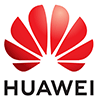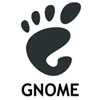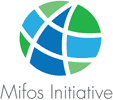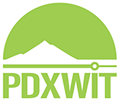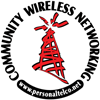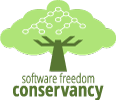Topics
- Blockchain beyond Cryptocurrencies
- Building Data-Intensive Applications
- Cloud-Native Strategies and Implementation
- Emerging Languages and Frameworks
- Incorporating Artificial Intelligence
- Live Coding ONLY
- Open Source
- OSCON Business Summit - Open Source in Enterprise Case Studies
- Software Methodologies from Ideation to Deployment
- Sponsored
- The Next Architecture
Portland 251
11:00am
Navigating the service mesh landscape with Istio, Consul Connect, and Linkerd
Christian Posta (solo.io)
2:35pm
Firecracker: A secure and fast microVM for serverless computing
Arun Gupta (Amazon Web Services), Meena Gowdar (Amazon Web Services)
5:05pm
Simple, secure, and reliable: Building cloud native applications with NATS
Waldemar Quevedo Salinas (Synadia Communications, Inc)
Portland 252
2:35pm
Build an app with real-time GraphQL, managed PostgreSQL, and async serverless business logic
Bart Verkoeijen (KintoHub)
Portland 255
11:50am
Integrating security into modern software development: A workflow study
Lucas Charles (GitLab)
5:05pm
Unlocking your serverless functions with OpenFaaS for AI chatbot projects
Sergio Mendez (Universidad San Carlos de Guatemala)
Portland 256
C120-122
11:50am
The San Francisco open source voting project
Tony Wasserman (Carnegie Mellon University in Silicon Valley)
1:45pm
A tale of two cities: Merging Yahoo and Aol’s open source programs
Ashley Wolf (Verizon Media), Gil Yehuda (Verizon Media)
4:15pm
Quota exceeded: Success and failure building an observability pipeline at The Home Depot
David Narayan (The Home Depot)
5:05pm
Democratizing fintech: Enabling financial services for all through open source banking
Edward Cable (Mifos Initiative)
C123-124
1:45pm
Introducing Kubeflow with special guests TensorFlow and cross-cloud machine learning
Holden Karau (Independent), Trevor Grant (IBM)
D135/136
D138-140
11:50am
Planetary skin and data-driven microgrids to protect against natural disasters
Michael Enescu (Project EAN), Peter Enescu (University of California San Diego)
2:35pm
Open source streaming analytics with the Kafka, Flink, Cassandra (KFC) stack
Bas Geerdink (Aizonic)
E143/144
E145/146
11:00am
The connected community model: Research findings and lessons learned
Diane Mueller (Red Hat OpenShift), Daniel Izquierdo (Bitergia)
2:35pm
FOSS governance: The good, the bad, and the ugly
Deb Nicholson (Software Freedom Conservancy)
5:05pm
Building and maintaining open source communities
Mary Thengvall (Persea Consulting), Jason Hibbets (Red Hat), Sherrie Rohde (Magento), Mike Jang (GitLab), Angie Jones (Applitools)
D137
11:00am
A decentralized reference architecture for cloud native applications (sponsored by Ballerina)
Asanka Abeysinghe (WSO2)
E141/142
11:00am
CUPS at large (scale) (sponsored by The Home Depot)
Robert Batson (The Home Depot), Mary Schnupp (The Home Depot)
11:50am
Great wide open source in big business (sponsored by Capital One)
Jag Gadiyaram (Capital One)
2:35pm
Sustaining FOSS projects by democratizing the sponsorship process (sponsored by Indeed)
Duane O'Brien (Indeed)
F150
11:00am
Developing serverless applications on Kubernetes with Knative (sponsored by Pivotal)
Bryan Friedman (Pivotal), Brian McClain (Pivotal)
11:50am
Stick a fork in DIY login and user registration. It’s already done. (sponsored by Ping Identity)
Zach Collier (Ping Identity)
1:45pm
Gourmet alerting with Open Distro for Elasticsearch (sponsored by AWS)
Alolita Sharma (Amazon Web Services), Mihir Soni (Amazon Web Services)
2:35pm
Eclipse Che: IDE and developer workspaces as a service (sponsored by Red Hat)
Dave Neary (Red Hat)
F151
11:00am
Solving enterprise DevOps and frontend challenges with open source (sponsored by HPE)
pramod reddy Sareddy (HPE)
11:50am
gRPC in Go, C#, and Java: A microservices code kata (sponsored by Salesforce)
Ryan Michela (Salesforce)
2:35pm
Toward a de facto standard in AI: What’s new in TensorFlow 2.0 (sponsored by IBM)
Romeo Kienzler (IBM Center for Open Source Data and AI Technologies)
9:00am
Plenary
Room: Portland Ballroom
Wednesday opening welcome Rachel Roumeliotis (O'Reilly), Kelsey Hightower (Google)
Room: Portland Ballroom
Wednesday opening welcome Rachel Roumeliotis (O'Reilly), Kelsey Hightower (Google)
The role of open source in mitigating natural disasters (sponsored by IBM)
Pedro Cruz (IBM ), Brad Topol (IBM)
Why Amazon cares about open source (sponsored by Amazon Web Services)
Arun Gupta (Amazon Web Services)
8:00am
Morning Coffee
Room: Portland Ballroom Foyer
Room: Portland Ballroom Foyer
10:20am
Morning Break
Room: Expo Hall
Room: Expo Hall
3:15pm
Afternoon Break
Room: Expo Hall
Room: Expo Hall
12:30pm
Plenary
Room: Portland Ballroom
Better Together Diversity Networking Lunch (sponsored by Google Cloud)
Room: Portland Ballroom
Better Together Diversity Networking Lunch (sponsored by Google Cloud)
7:45am
Plenary
Room: TBD
TBC
Room: TBD
TBC
8:45am
Plenary
Room: TBD
TBC
Room: TBD
TBC
11:00am-11:40am (40m)
Cloud-Native Strategies and Implementation
Cloud Native
Navigating the service mesh landscape with Istio, Consul Connect, and Linkerd
Christian Posta (solo.io)
Service mesh has hit the cloud-native computing community like a storm, and we're starting to see gradual adoption across the enterprise. Christian Posta examines the strengths and weaknesses of respective service mesh implementations to help you decide which one is right for you or, more importantly, whether a service mesh is right at all.
11:50am-12:30pm (40m)
Cloud-Native Strategies and Implementation
Cloud Native
Kubernetes day 3: The state of Kubernetes development tooling
Ellen Korbes (Garden)
Developers working with Kubernetes still wonder what the optimal development workflow looks like. Ellen Korbes explores the capabilities of the tooling available in the current landscape and sees if it can offer end-to-end workflows that perform effectively in the real world.
1:45pm-2:25pm (40m)
Cloud-Native Strategies and Implementation
Cloud Native
Conquering both containers and virtual machines with Kubernetes
Kris Nova (Independent)
Virtual machines (VMs) changed the world and containers swooped in shortly after. Learn about the deep technical differences between virtualization and containers with Kris Nova as she dives into the relevance and unique implementation of VMs in Kubernetes now and moving forward into the new world of cloud native.
2:35pm-3:15pm (40m)
Cloud-Native Strategies and Implementation
Cloud Native
Firecracker: A secure and fast microVM for serverless computing
Arun Gupta (Amazon Web Services), Meena Gowdar (Amazon Web Services)
Firecracker is an open source virtualization technology that is purpose-built for creating and managing secure, multitenant containers and functions-based services. Firecracker runs in user space and uses the Linux kernel-based virtual machine (KVM) to create microVMs. Arun Gupta and Meena Gowdar explore the foundations of Firecracker and examine how it's used with different technologies.
4:15pm-4:55pm (40m)
Cloud-Native Strategies and Implementation
Cloud Native
Deploying Windows apps with Draft, Helm, and Kubernetes
Jessica Deen (Microsoft)
Join Jessica Deen to walk through two key workflows for Windows applications and containers: the lift and shift scenario and the modern .NET Core framework.
5:05pm-5:45pm (40m)
Cloud-Native Strategies and Implementation
Cloud Native
Simple, secure, and reliable: Building cloud native applications with NATS
Waldemar Quevedo Salinas (Synadia Communications, Inc)
NATS is a mature, high-performance publish/subscribe messaging system that's part of the Cloud Native Computing Foundation (CNCF). Waldemar Quevedo explores how to build production-ready applications using NATS to address common issues that arise in cloud native environments, such as service discovery, scalability, self-healing, authentication/authorization, and low-latency RPC.
11:00am-11:40am (40m)
Live Coding ONLY
Open Source
Live streams live
Benjamin Picolo (Squarespace)
Benjamin Picolo walks you through bootstrapping and using gRPC streams to build real-time APIs usable across services, the browser, and mobile applications all at once.
11:50am-12:30pm (40m)
Live Coding ONLY
Open Source
Become more productive by using IPython
Jacinda Shelly (Doctor On Demand)
If your Python interpreter still starts with >>>, join Jacinda Shelly to learn how IPython—an enhanced interactive Python shell guaranteed to improve the productivity of any Python user still using the default Python shell—can improve your programming life. And if you've used IPython for a while, stop by to learn tricks you didn't even know IPython had up its sleeve.
1:45pm-2:25pm (40m)
Live Coding ONLY
Open Source
Flutter meets the physical world
Emily Fortuna (Google), Matt Sullivan (Google)
While Flutter’s known for being a developer-friendly way of building mobile apps, the SDK is equally at home on open hardware. Emily Fortuna and Matt Sullivan take you on a journey to explore interacting with the physical world using the open source Flutter SDK.
2:35pm-3:15pm (40m)
Live Coding ONLY
Build an app with real-time GraphQL, managed PostgreSQL, and async serverless business logic
Bart Verkoeijen (KintoHub)
Tanmai Gopal live-codes the backend of a simple food-ordering app from scratch that features a real-time GraphQL API backend by PostgreSQL with business logic running in serverless functions. Along the way, Tanmai demonstrates the app's reliability by making random portions of the backend fail to show automatic recovery. You'll help by live-testing the app for scale.
4:15pm-4:55pm (40m)
Live Coding ONLY
Open Source
Untangling the knots with distributed tracing
Isobel Redelmeier (LightStep)
You're sick of grepping through logs, hunting down the cause of last night's outage. Your team dreams of refactoring to better architecture but struggles to get started amid the spaghetti code. Production meets all performance objectives only because you can't measure it. Join Isobel Redelmeier to learn how to apply distributed tracing for better debugging, performance analysis, and refactoring.
5:05pm-5:45pm (40m)
Live Coding ONLY
OSCON Apache Airflow live PR coding
Holden Karau (Independent), Leah Cole (Google)
Holden Karau and Leah Cole spend five minutes searching for a simple-looking to-do, making sure nobody else is working on it on JIRA or GitHub, and then lead a fun pair-programming live-coding session, pairing both writing code and code review, to put together a fix.
11:00am-11:40am (40m)
Software Methodologies from Ideation to Deployment
Customer Centered
The philosophy of versions
Adam Harvey (New Relic)
Versioning is hard. In 2015, the PHP project released version 7.0 of the PHP language, but first, the developers had to understand what the scope of the version would be and what they were willing to break. Adam Harvey walks you through what they learned.
11:50am-12:30pm (40m)
Software Methodologies from Ideation to Deployment
Customer Centered
Integrating security into modern software development: A workflow study
Lucas Charles (GitLab)
Application security testing has been around for a long time, yet successful attacks continue despite significant investments in application security. Shift left isn’t enough for modern software development that needs integrated and automated continuous security testing. Lucas Charles looks at three key considerations to get you there.
1:45pm-2:25pm (40m)
Software Methodologies from Ideation to Deployment
Customer Centered
Loops must die
Marco Emrich (codecentric)
A good developer will always try to enlarge their toolbox and get to know new or better tools for specific situations, but it's also helpful to free yourself from mental ballast now and then to get rid of one or another stone wedge. For most developers, a classic loop is such a stone wedge. Marco Emrich dives into why you shouldn't program loops anymore.
2:35pm-3:15pm (40m)
Software Methodologies from Ideation to Deployment
Refactoring and readability
Bruce Gray (Gray & Associates)
Quality literature isn't produced by just writing; it's in the rewriting that excellence is achieved. This is also true with code. Robert Gray shines a spotlight on the mind-set and mechanics of refactoring and explains why it's key to improving readability and code quality.
4:15pm-4:55pm (40m)
Software Methodologies from Ideation to Deployment
Customer Centered
Get thicker data naturally with computational anthropology
Augustina Ragwitz (IBM)
Software is a computational model of human behavior, yet human inquiry isn't part of STEM professional development. Anthropology, described by Alfred Kroeber as "the most scientific of the humanities and the most humanitarian of the sciences," has a long relationship with computational analysis. Augustina Ragwitz explores what you can learn from this approach to computation.
5:05pm-5:45pm (40m)
Software Methodologies from Ideation to Deployment
Customer Centered
Unlocking your serverless functions with OpenFaaS for AI chatbot projects
Sergio Mendez (Universidad San Carlos de Guatemala)
Sergio Mendez examines critical challenges when implementing AI chatbots and explains how Movistar designed an open source serverless architecture using OpenFaaS on top of Kubernetes and other complementary technologies like NoSQL, brokers to deploy Telegram AI chatbots. Sergio then compares these technologies to "vendor lock-in" services offered by major cloud providers.
11:00am-11:40am (40m)
Emerging Languages and Frameworks
Open Source
Reactive for the impatient
Mary Grygleski (IBM)
As Java is an object-oriented language that inherently supports the imperative programming style, asynchronicity presents a challenge that can turn the code into a nightmare. Mary Grygleski leads a gentle but comprehensive technical introduction to reactive programming and systems with some practical coding examples to whet your appetite to start using the elegant reactive style in your programs.
11:50am-12:30pm (40m)
Emerging Languages and Frameworks
Open Source
Intro to Rust
Nathan Stocks (GitHub)
Rust is a systems programming language that runs blazingly fast, prevents segfaults, and guarantees thread safety. Nathan Stocks leads a fast-paced introduction to Rust 2018 concepts, features, community, and language fundamentals—a crash course that teaches you why Rust is awesome and how to use some of the awesomeness. Thought about getting into low-level systems programming? Start here.
1:45pm-2:25pm (40m)
Emerging Languages and Frameworks
Open Source
Observability and performance analysis with BPF
David Calavera (Netlify)
Berkeley Packet Filter (BPF) is a virtual machine inside the Linux kernel that provides secure and high-performant observability with limited overhead. BPF is changing how engineers analyze and observe programs running in production. David Calavera demystifies BPF and challenges you to explore the Linux kernel in ways that you never thought possible.
2:35pm-3:15pm (40m)
Emerging Languages and Frameworks
Bootiful Kotlin
Josh Long (Pivotal)
Join Josh Long to learn how the Spring and Kotlin teams have worked hard to make sure that Kotlin and Spring Boot are a first-class experience for all developers trying to get to production faster and safer. Come for the Spring and stay for the Bootiful Kotlin.
4:15pm-4:55pm (40m)
Emerging Languages and Frameworks
Open Source
Let's go serverless with Swift using Vapor
Timirah James (TechniGal LA)
Although Swift is steadily gaining traction and credibility among developers, some still have trouble believing in Swift’s ability when it comes to serverless. But you don't have to be afraid. Timirah James explores the basics of the popular server-side Swift web framework Vapor and uses it to build a fun and simple serverless application.
5:05pm-5:45pm (40m)
Emerging Languages and Frameworks
Open Source
Children of Ruby: The different worlds of Elixir and Crystal
Simon St.Laurent (LinkedIn)
You program in Ruby but long for greater concurrency. You dream of programs that run instantly when called. You wish everything had clearly defined types. Join Simon St.Laurent to learn how Elixir and Crystal refine the diverse approaches built into Ruby, modifying the syntax and structures of this commonly understood language to address their very different priorities.
11:00am-11:40am (40m)
OSCON Business Summit - Open Source in Enterprise Case Studies
Customer Centered
Envoy: An end-user-driven open source success story
Matt Klein (Lyft)
Matt Klein leads you on a behind-the-scenes look at the nontechnical operations support system (OSS) aspects (community growth, documentation, PR, marketing, governance, business model, etc.) of Envoy’s incredible end-user-driven growth since being released only two years ago.
11:50am-12:30pm (40m)
OSCON Business Summit - Open Source in Enterprise Case Studies
Customer Centered
The San Francisco open source voting project
Tony Wasserman (Carnegie Mellon University in Silicon Valley)
In 2016, the mayor and board of supervisors of the city and county of San Francisco approved a plan that would lead to the development of open source voting technology for San Francisco’s elections. Tony Wasserman provides a progress report on the development of an open source voting system to replace San Francisco's existing proprietary paper ballot voting system.
1:45pm-2:25pm (40m)
OSCON Business Summit - Open Source in Enterprise Case Studies
Customer Centered
A tale of two cities: Merging Yahoo and Aol’s open source programs
Ashley Wolf (Verizon Media), Gil Yehuda (Verizon Media)
It was the best of times; it was the worst of times. It was the the mash-up of two different ways to manage open source programs at internet giants that merged to become one; Ashley Wolf and Gil Yehuda dig into what you can learn from this experience in your open source program office so that yours is the spring of hope, not the winter of despair.
2:35pm-3:15pm (40m)
Overview of Data Governance
Paco Nathan (derwen.ai)
Paco Nathan offers an overview of its history, themes, tools, process, standards, and more—partly based on interviewing experts in this field about issues and best practices. Join in to learn what impact machine learning has on data governance and vice versa, along with an overview of open source projects and open standards in this space.
4:15pm-4:55pm (40m)
OSCON Business Summit - Open Source in Enterprise Case Studies
Customer Centered
Quota exceeded: Success and failure building an observability pipeline at The Home Depot
David Narayan (The Home Depot)
David Narayan shares the successes and failures encountered building the observability pipeline that collects, processes, and stores terabytes of data from the applications and infrastructure supporting The Home Depot. Join in to learn the lessons the $100 billion retailer learned the hard way.
5:05pm-5:45pm (40m)
OSCON Business Summit - Open Source in Enterprise Case Studies
Democratizing fintech: Enabling financial services for all through open source banking
Edward Cable (Mifos Initiative)
A convergence of trends and technologies is enabling the democratization of financial services—big data, AI, the cloud, smartphone ubiquity, national IDs, blockchain, and open banking. However, there's one missing factor—open source banking—that will scale the movement and unlock financial services for all, from the unbanked in India to the underbanked in America.
11:00am-11:40am (40m)
Incorporating Artificial Intelligence
AI Enhanced
Live-coding a machine learning model from scratch
Sara Robinson (Google)
Do you want to build a machine learning model but aren't sure where to start? Sara Robinson demonstrates how to train and serve the model on Google Cloud Platform, starting with an empty notebook and ending with a simple neural network, coded from start to finish.
11:50am-12:30pm (40m)
Incorporating Artificial Intelligence
AI Enhanced
Digital discrimination: Cognitive bias in machine learning
Maureen McElaney (IBM)
With increasing regularity we see stories in the news about machine learning algorithms causing real-world harm to people's lives and livelihoods. Maureen McElaney examines how bias can take root in machine learning algorithms and ways to overcome it.
1:45pm-2:25pm (40m)
Incorporating Artificial Intelligence
AI Enhanced
Introducing Kubeflow with special guests TensorFlow and cross-cloud machine learning
Holden Karau (Independent), Trevor Grant (IBM)
Data science, machine learning, and artificial intelligence have exploded in popularity in the last five years, but the nagging question of how to put models into production remains. Holden Karau and Trevor Grant demonstrate how to build a machine learning model and set up serving across clouds with Kubeflow.
2:35pm-3:15pm (40m)
Incorporating Artificial Intelligence
AI Enhanced
ML on code: Machine learning will change programming
Francesc Campoy (Dgraph)
Machine learning (ML) has revolutionized how we drive, make decisions, and even communicate with each other and our computers, but the way we code hasn't significantly changed since the seventies. Francesc Campoy explains why it's time to make that change.
4:15pm-4:55pm (40m)
Incorporating Artificial Intelligence
AI Enhanced
Learn neural networks with Go—not math
Ellen Korbes (Garden)
Studying neural networks is a surefire way to end up fighting more math than you can shake a stick at. Wish you could learn about the likes of gradient descent and backpropagation in a language you actually understand—like Go? Then this one is for you. Join Ellen Korbes to learn neural networks with code, not math, and algorithms, not logarithms.
5:05pm-5:45pm (40m)
Incorporating Artificial Intelligence
AI Enhanced
Measuring embedded machine learning
Alasdair Allan (Babilim Light Industries)
The future of machine learning is on the edge and on small, embedded devices that can run for a year or more on a single coin-cell battery. Alasdair Allan dives deep into how using deep learning can be very energy efficient and allows you to make sense of sensor data in real time.
11:00am-11:40am (40m)
The Next Architecture
Cloud Native
Transforming legacy infrastructure into globally scalable regions
Sean Kane (New Relic)
What happens when a company outgrows its very first data center or cloud region? Ideally, it uses its preexisting tools. Sean Kane outlines the challenges that New Relic faced while modernizing its infrastructure and demonstrates how it used processes and technology to successfully transform its monolithic data center into a repeatable system for stamping out new regions all around the world.
11:50am-12:30pm (40m)
The Next Architecture
Cloud Native
Helm 3: Navigating to distant shores
Bridget Kromhout (Microsoft), Jessica Deen (Microsoft)
Bridget Kromhout and Jessica Deen lead a demo-fueled exploration of the differences between Helm 3 and the Helm of yore, tips for a successful rollout or upgrade, and opportunities to shape the project’s future.
1:45pm-2:25pm (40m)
The Next Architecture
Cloud Native
Dissolving the problem: Kafka is more ACID than your database
Tim Berglund (Confluent)
It's become at truism in the past decade that building systems at scale, using nonrelational databases, requires giving up on the transactional guarantees afforded by the relational databases of yore. Tim Berglund explains that not only is a microservices estate built on Apache Kafka equivalent to a giant database, it's a database that can realize ACID semantics at scale.
2:35pm-3:15pm (40m)
The Next Architecture
Cloud Native
eBPF-powered distributed Kubernetes performance analysis
Lorenzo Fontana (Sysdig)
Imagine a programmable Kubernetes performance analysis tool that runs at cluster level without performance implications. Lorenzo Fontana dives into how tracing the execution of your programs and the kernel they rely on in a Kubernetes cluster can be a challenge. He outlines a possible approach using bpftrace and kubectl.
4:15pm-4:55pm (40m)
The Next Architecture
Cloud Native
I'm a developer; should I care about a service mesh?
Neeraj Poddar (Aspen Mesh)
Understanding what problems a service mesh is designed to solve and leveraging its capabilities is key for application developers. This allows you to focus on the pieces you need to build your application and deliver business value. Neeraj Poddar dissects which service mesh capabilities you should care about and explores common questions from platform teams.
5:05pm-5:45pm (40m)
The Next Architecture
Cloud Native
Small is going big: Go on microcontrollers
Ron Evans (The Hybrid Group)
TinyGo takes the Go programming language to the "final frontier" where it could not go before...running directly on microcontrollers like Arduino, the BBC's micro:bit, and more. Ron Evans introduces you to TinyGo and demonstrates some live coding.
11:00am-11:40am (40m)
Building Data-Intensive Applications
Data Driven
Demystifying data science
Grishma Jena (IBM)
Today’s world generates different kinds of data at unbelievably rapid rates. Grishma Jena explains data science, the data science pipeline, and algorithms using real-life examples.
11:50am-12:30pm (40m)
Building Data-Intensive Applications
Data Driven
Planetary skin and data-driven microgrids to protect against natural disasters
Michael Enescu (Project EAN), Peter Enescu (University of California San Diego)
Fires caused by electric grid failures are increasing at an alarming rate. Michael Enescu and Peter Enescu examine how the energy adaptive networks technology built on open source and used to monitor and control power grids forms a planetary skin that can be used to predict and avoid such disasters as the Napa and Paradise Fires.
1:45pm-2:25pm (40m)
Building Data-Intensive Applications
Data Driven
Humans do not have a primary key
Christophe Pettus (PostgreSQL Experts, Inc.)
Applications from social media to healthcare to media are increasingly focused on humans and their relationships. But people do not lend themselves easily to being reduced to small slots. Christophe Pettus draws on his experience in data modeling and application design to examine how to successfully approach modeling humans and their relationships and legal compliance issues in a GDPR world.
2:35pm-3:15pm (40m)
Building Data-Intensive Applications
Data Driven
Open source streaming analytics with the Kafka, Flink, Cassandra (KFC) stack
Bas Geerdink (Aizonic)
Streaming analytics is a popular subject in enterprise organizations because customers want real-time experiences, such as notifications and advice based on online behavior and other users’ actions. Bas Geerdink details an open source reference solution for streaming analytics that covers many use cases that follow a "pipes and filters" pattern, built with Scala, Flink, Kafka, and Cassandra.
4:15pm-4:55pm (40m)
Building Data-Intensive Applications
Data Driven
Real-time streaming APIs: From data center to internet clients
Wenbo Zhu (Google)
When designing APIs such as the new GCP Firestore real-time database and Google Assistant, how did Google decide which trade-offs to make? Wenbo Zhu dives deep into the challenges faced while deploying a real-time streaming API designed for clients from data centers to the internet and details the trade-offs API developers need be aware of when designing such an API.
5:05pm-5:45pm (40m)
Building Data-Intensive Applications
Data Driven
Optimizing analytical queries on Cassandra by 100x
Shradha Ambekar (Intuit)
Cassandra is one of the most popular datastores in big data and ML applications. Data analysis at scale with fast query response is critical for business needs, and while Cassandra with Spark integration allows running an analytical workload, it can be slow. Shradha Ambekar dives into the challenges faced at Intuit and the solutions her team implemented to improve performance by 100x.
11:00am-11:40am (40m)
Blockchain beyond Cryptocurrencies
What will a blockchain world look like?
Alison McCauley (Unblocked Future)
Go beyond the blockchain noise and crypto hype to get a glimpse of what a blockchain future could actually look like. Join Alison McCauley to catapult above the nuts and bolts and take an aerial tour of the blockchain future that a growing army is building out right now.
11:50am-12:30pm (40m)
Blockchain beyond Cryptocurrencies
Data Driven
2019: Year of professionalization for open source blockchain
Brian Behlendorf (Hyperledger)
Blockchain is now established as a valid technology to be used across enterprise applications. Brian Behlendorf discusses what he sees as the next stage of maturation for the tech—professionalization. Join in to explore standards, certifications, and training options for developers, blockchain as a service solutions, and how to avoid vendor lock-in.
1:45pm-2:25pm (40m)
Advanced Git - Functionality and Features
Brent Laster (SAS)
Join Brent Laster, open-source trainer and author of Professional Git, as he surveys Git beyond the basics. This presentation will be a quick overview of various advanced (and useful) Git commands and features.
2:35pm-3:15pm (40m)
Blockchain beyond Cryptocurrencies
Data Driven
Blockchain for good
Herman Smith (ixo)
ixo is the blockchain for impact, helping individuals and organizations around the world to achieve the UN Sustainable Development Goals by 2030. Herman Smith dives into how ixo can help you count what matters and value what counts using new Web 3.0 protocols and the ixo blockchain.
4:15pm-4:55pm (40m)
Blockchain beyond Cryptocurrencies
Data Driven
How blockchain is changing the food industry
Erin Vincent (Erin Vincent)
E. coli. Salmonella. Listeria. Last year saw several major outbreaks of foodborne illnesses. Tracing the source of contamination took days, even months; we should have the technology to do better. Using the 2018 outbreaks of E. coli in romaine lettuce as a case study, Erin Vincent examines blockchain technology, explains how it works, and compares types of blockchains and their use cases.
5:05pm-5:45pm (40m)
Blockchain beyond Cryptocurrencies
Data Driven
Deploy a blockchain web app with Hyperledger Fabric
Horea Porutiu (IBM)
If you've ever wanted to get into blockchain development but haven't found a good place to start, you're in the right place. Horea Porutiu walks you through the basics of the Hyperledger Fabric platform by building a simple blockchain application and analyzing the main components required to run a blockchain network.
11:00am-11:40am (40m)
Open Source
Open Source
The connected community model: Research findings and lessons learned
Diane Mueller (Red Hat OpenShift), Daniel Izquierdo (Bitergia)
Diane Mueller and Daniel Izquierdo examine joint research findings from Bitergia and share lessons learned at Red Hat on the interrelatedness of Kubernetes, OpenShift (OKD), OpenStack, and Cloud Native Computing Foundation (CNCF) communities developing around distributions. They also detail new approaches to open source community development.
11:50am-12:30pm (40m)
Open Source
Open Source
Working for open source: How to chart your own course
Danese Cooper (NearForm)
Danese Cooper has worked for open source for 20 of her 30 years in the tech industry, regardless of who her actual employer was. She explains how to chart a career in open source that allows you to work for the future of the movement we all love.
1:45pm-2:25pm (40m)
Open Source
Open Source
An open collaboration maturity model
Russell Rutledge (Nike)
You've got big ideas on how your company should develop an open source culture more fully. Russell Rutledge explains the relationship between open source participation and other collaborative behaviors and how you can apply that to meet your open source goals. The collaboration maturity model gives you guideposts to follow on your organization's journey toward open source.
2:35pm-3:15pm (40m)
Open Source
Open Source
FOSS governance: The good, the bad, and the ugly
Deb Nicholson (Software Freedom Conservancy)
There are a lot of ideas about how to run an open source project. Sometimes governance just happens, but more often, projects have some things that work and some that don't. Maintaining and scaling your project is easier when you've laid a good foundation. Deb Nicholson takes you on a whirlwind tour of what not to do, what to do instead, and (maybe) what you can do to fix what you've already done.
4:15pm-4:55pm (40m)
Open Source
Open Source
Marketing your open source project
Deirdré Straughan (Amazon Web Services)
Your open source project competes with millions of others for users, contributors, and perhaps financial support. To stand out from the crowd, you need marketing. If that term makes you shudder, don't worry. Deirdré Straughan walks you through the why and how of open source marketing, including code, documentation, events, social media, and the importance of your community to your project.
5:05pm-5:45pm (40m)
Open Source
Open Source
Building and maintaining open source communities
Mary Thengvall (Persea Consulting), Jason Hibbets (Red Hat), Sherrie Rohde (Magento), Mike Jang (GitLab), Angie Jones (Applitools)
Being successful in creating an open source community requires planning, measurements, and clear goals. Mary Thengvall, Jason Hibbets, Sherrie Rohde, Mike Jang, and Angie Jones share their firsthand experiences of how open source communities have directly attributed to the success of a product as well as best practices to build and maintain these communities.
11:00am-11:40am (40m)
Sponsored
A decentralized reference architecture for cloud native applications (sponsored by Ballerina)
Asanka Abeysinghe (WSO2)
Asanka Abeysinghe explores cell-based architecture, a self-contained composable unit of architecture. The cell is independently scalable. It’s independently deployable. It’s independently governed. It's part of an ecosystem of cells. A cell-based architecture is a common pattern that any enterprise can connect architecture, implementation, and deployment by making autonomous development teams.
11:00am-11:40am (40m)
Sponsored
CUPS at large (scale) (sponsored by The Home Depot)
Robert Batson (The Home Depot), Mary Schnupp (The Home Depot)
Robert Batson and Mary Schnupp examine how the Home Depot uses Common Unix Printing System (CUPS), the open source print server, scaled to an enterprise-grade solution aided by cloud and container technologies.
11:50am-12:30pm (40m)
Sponsored
Great wide open source in big business (sponsored by Capital One)
Jag Gadiyaram (Capital One)
Large enterprises frequently struggle to scale their open source program office to support their open source ambitions. Jag Gadiyaram shares the journey one large company took to overcome challenges and build out a scalable program office.
1:45pm-2:25pm (40m)
Sponsored
Desktop apps with JavaScript (sponsored by Slack)
Felix Rieseberg (Slack)
Chances are high that you’re already using desktop software built with JavaScript—apps like Slack, Visual Studio Code, or WhatsApp use the framework Electron to combine native code with the conveniences of Node.js and web technologies. Felix Rieseberg walks you through Electron and the upsides and downsides of building apps with JavaScript.
2:35pm-3:15pm (40m)
Sponsored
Sustaining FOSS projects by democratizing the sponsorship process (sponsored by Indeed)
Duane O'Brien (Indeed)
There are typically only a few people in any company involved in deciding which FOSS projects and initiatives to support financially. Duane O'Brien explains how Indeed runs and manages its FOSS sustainability fund.
11:00am-11:40am (40m)
Sponsored
Developing serverless applications on Kubernetes with Knative (sponsored by Pivotal)
Bryan Friedman (Pivotal), Brian McClain (Pivotal)
There's too much fragmentation for developers when it comes to deciding the right open source FaaS solution. Bryan Friedman and Brian McClain detail Knative, an open source project from Google, Pivotal, and other industry leaders that provides a set of common tooling on top of Kubernetes to help developers build functions.
11:50am-12:30pm (40m)
Sponsored
Stick a fork in DIY login and user registration. It’s already done. (sponsored by Ping Identity)
Zach Collier (Ping Identity)
The battle has been won and the dust has settled. Now, SAML, OpenID Connect, and OAuth rule customer identity standards. They can be complex, especially for large enterprises. Get them wrong, and you can ruin the first impression you make with users, not to mention put their data at risk. Zach Collier demonstrates how to take security off your plate and make a great first impression.
1:45pm-2:25pm (40m)
Sponsored
Gourmet alerting with Open Distro for Elasticsearch (sponsored by AWS)
Alolita Sharma (Amazon Web Services), Mihir Soni (Amazon Web Services)
Alolita Sharma and Mihir Soni detail the basic ingredients you need to create useful alerting with Open Distro for Elasticsearch and share recipes that demonstrate how to set up and manage your alerts. By the time you're through, you'll be on your way to becoming a master at at handling your alerting data for Elasticsearch.
2:35pm-3:15pm (40m)
Sponsored
Eclipse Che: IDE and developer workspaces as a service (sponsored by Red Hat)
Dave Neary (Red Hat)
Some key difficulties of managing large development teams are ensuring consistency across developer environments, helping new developers get their tooling and dependencies set up, and enforcing consistency between environments. Dave Neary outlines what Red Hat, Broadcom, Progress, Bosch, and others are doing to move Eclipse Che toward enterprise readiness.
11:00am-11:40am (40m)
Sponsored
Solving enterprise DevOps and frontend challenges with open source (sponsored by HPE)
pramod reddy Sareddy (HPE)
Almost everyone's looking to streamline the way they develop apps and deploy them. Taking advantage of an easy-to-use open source UI component library (such as grommet.io) to create responsive, mobile-first projects is the way to go. Join Pramod Sareddy to learn how Open Service Broker saves you time.
11:50am-12:30pm (40m)
Sponsored
gRPC in Go, C#, and Java: A microservices code kata (sponsored by Salesforce)
Ryan Michela (Salesforce)
gRPC is built on top of protocol buffers, which provide a platform-agnostic way for expressing a service contract, and eliminate common boilerplate code, leaving you to focus on the business logic that matters most. Ryan Michela builds the same simple microservice in three different languages using gRPC to demonstrate how gRPC makes cross-platform microservice interoperability easy.
1:45pm-2:25pm (40m)
Sponsored
End-to-end transparent, secure, and trusted machine learning pipelines using open source technologies (sponsored by IBM)
Animesh Singh (IBM)
There's a growing demand for fairness, accountability, and transparency from machine learning (ML) systems. We need a pipeline that's open, transparent, secure, and fair and that fully integrates into the AI lifecycle. Animesh Singh examines how to build such a pipeline while leveraging open source projects.
2:35pm-3:15pm (40m)
Sponsored
Toward a de facto standard in AI: What’s new in TensorFlow 2.0 (sponsored by IBM)
Romeo Kienzler (IBM Center for Open Source Data and AI Technologies)
TensorFlow 2.0 successfully addressed the complaints of TensorFlow’s initial release and promises to become the go-to framework for many AI problems. Romeo Kienzler explores the most prominent changes in TensorFlow 2.0 and explains how to use the new features in your projects. He also examines TensorFlow Extended (TFX) and contrasts it with existing de facto standard frameworks like Apache Spark.
9:00am-9:05am (5m)
Wednesday opening welcome
Rachel Roumeliotis (O'Reilly), Kelsey Hightower (Google)
Program chairs Rachel Roumeliotis and Kelsey Hightower open the first day of keynotes.
9:05am-9:15am (10m)
Better living through software
Tiffani Bell (The Human Utility)
We live in an era where technology impacts more and more of our lives in deeper and deeper ways everyday. But, do we consider who is impacted and how? Are we thinking of how technology can help the less fortunate? This talk covers three lessons learned by a hacker who asked herself these questions and believes in better living through software.
9:30am-9:40am (10m)
Built to Last - building and growing open source communities
Kay Williams (Microsoft)
Open source has become a cornerstone of many tech stacks. A good idea and few lines of code can be the start of the next big project, but many lose steam because they fail to foster a thriving community to shepherd the project in the years to come. Kay Williams explores key learnings for building strong open source communities based on Microsoft’s real-world experience with Kubernetes and VSCode.
9:40am-9:50am (10m)
Sustainable Gardens
Paris Pittman (Google)
Your open source project is up and running - now what? Paris Pittman will walk through some of the practical, tactical work you can do to ensure your community doesn't just grow, but thrive. Through examples from multiple Google-supported open source communities, you'll learn how to create "gardeners" that do the hard but essential work that builds and sustains healthy communities.
9:50am-10:00am (10m)
Sponsored
The role of open source in mitigating natural disasters (sponsored by IBM)
Pedro Cruz (IBM ), Brad Topol (IBM)
Many IBM products and offerings have a solid foundation of open source—take a peek under the hood of IBM’s cloud platform and services and see for yourself. Pedro Cruz and Brad Topol outline the intersection between open source and natural disasters by sharing one of IBM's 2018 solutions. Learn how to get involved at Developer.ibm.com/callforcode.
10:00am-10:05am (5m)
Sponsored
Why Amazon cares about open source (sponsored by Amazon Web Services)
Arun Gupta (Amazon Web Services)
Arun Gupta walks you through how AWS starts with customers and works backwards to solve their problems. Customer use of and dependencies on open source technologies have been steadily increasing over the years; this is why AWS has long been committed to open source, and its commitment to open source projects and communities continues to accelerate.
10:05am-10:15am (10m)
The next age of open innovation
Alison McCauley (Unblocked Future)
In a world of increasingly complex challenges, the accelerated innovation of open source development is more urgent than ever. But nobody knows if it's enough. Join Alison McCauley to learn how blockchain technology offers new tools that could help extend the ethos of open innovation into new areas.
10:15am-10:20am (5m)
Closing remarks
Program chairs Rachel Roumeliotis and Kelsey Hightower close the first day of keynotes.
8:00am-9:00am (1h)
Break: Morning Coffee
8:15am-8:45am (30m)
Wednesday Morning Speed Networking
Ready, set, network! Meet fellow attendees who are looking to connect at OSCON. We'll gather before Wednesday and Thursday keynotes for an informal speed networking event. Be sure to bring your business cards—and remember to have fun.
10:20am-11:00am (40m)
Break: Morning Break
3:15pm-4:15pm (1h)
Break: Afternoon Break
5:45pm-7:00pm (1h 15m)
Expo Hall Reception
Join us in the Expo Hall for drinks and food at the OSCON Expo Hall Reception. This will be your first opportunity to network with other attendees, so don’t miss out.
12:30pm-1:45pm (1h 15m)
Wednesday Topic Tables & Lunch
Join other attendees during lunch to share ideas, talk about the issues of the day, and maybe solve a few. Not sure which topic to pick? Don’t worry—it's not a long-term commitment. Try two or three and settle on a different topic tomorrow.
12:30pm-1:45pm (1h 15m)
Better Together Diversity Networking Lunch (sponsored by Google Cloud)
If you’re looking to find like minds and make new professional connections, come to the diversity and inclusion networking lunch on Wednesday.
7:45am-8:00am (15m)
Plenary
8:45am-9:00am (15m)
Plenary
7:00am-7:45am (45m)
Wednesday Morning Yoga
Start the day on a relaxing note. Practice your downward dog before Speed Networking and keynotes.
7:30pm-11:30pm (4h)
The Official OSCON After Party (sponsored by Expensify)
Celebrate another successful year at OSCON with Team Expensify! Expensify is transforming its office into a summer soiree at Bank of Expensify, 401 Southwest 5th Avenue, Portland, OR 97204. Come and say hello, grab some food and drinks, catch up with old friends, and enjoy lawn games in the company's historic office downtown.
Premier Diamond Sponsor
Diamond Sponsors
Platinum Sponsor
Gold Sponsors
Silver Sponsors
Supporting Sponsors
Premier Exhibitors
Exhibitors
Innovators
Non-Profit Exhibitors
Diversity and Inclusion Sponsors
Sponsorship Opportunities
For exhibition and sponsorship opportunities, email oscon@oreilly.com
Partner Opportunities
For information on trade opportunities with O'Reilly conferences, email partners@oreilly.com
Contact Us
View a complete list of OSCON contacts
©2019, O'Reilly Media, Inc. • (800) 889-8969 or (707) 827-7019 • Monday-Friday 7:30am-5pm PT • All trademarks and registered trademarks appearing on oreilly.com are the property of their respective owners. • confreg@oreilly.com









